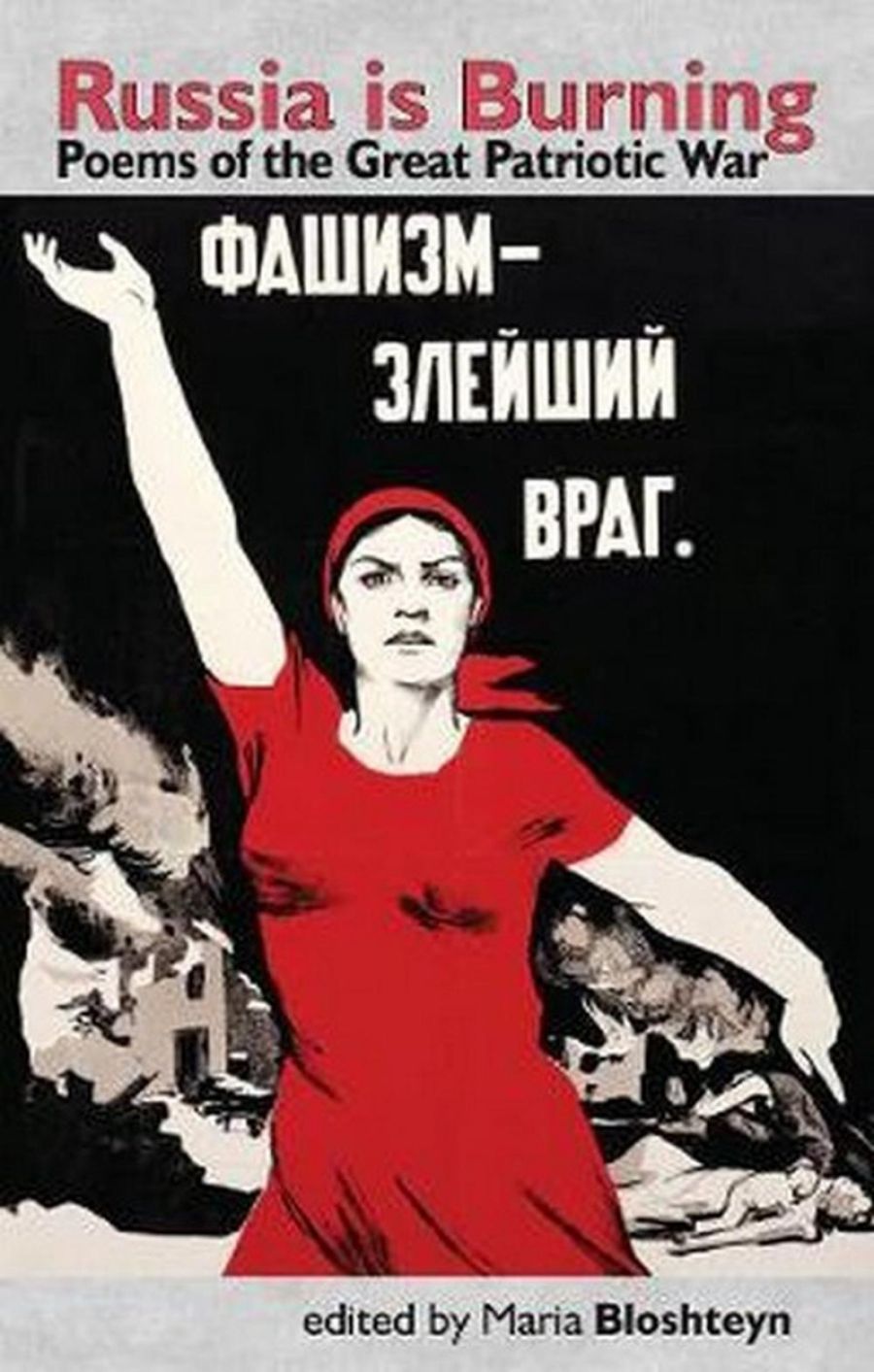
- Free Article: No
- Contents Category: History
- Review Article: Yes
- Article Title: Voices muted and heard
- Article Subtitle: Poetry of the Great Fatherland War
- Online Only: No
- Custom Highlight Text:
The invasion of the Soviet Union by Nazi Germany in 1941 caused massive destruction over a huge area. The number of deaths is uncertain, though a figure of around twenty-seven million is now widely accepted. The lives of many more millions were affected – as soldiers, as workers in war-related industries, as civilians in besieged and occupied territories, as refugees – and the experience of hardship and self-sacrifice in what is widely referred to in Russia as the ‘Great Patriotic War’ or the ‘Great Fatherland War’ continues to dominate the Russian historical narrative.
- Grid Image (300px * 250px):

- Book 1 Title: Russia Is Burning
- Book 1 Subtitle: Poems of the Great Patriotic War
- Book 1 Biblio: Smokestack Books, £13.99 pb, 476 pp
- Book 1 Readings Link: booktopia.kh4ffx.net/d4Lxq
Writers were conscripted as war correspondents in great numbers, and war poetry was ubiquitous in both the civilian and military media. Poems appeared in national newspapers and the newsletters of individual military units. They were read on the radio and in political education sessions, they circulated in handwritten copies, and they were set to music. Official war poetry had a strong propaganda value and was rarely innovative in form, but it also often resonated powerfully with the public mood. Poems such as Konstantin Simonov’s ‘Kill Him’, which situates a call to resist the Nazis within a deeply personalised context of loss, became rallying calls for the war effort. Other works, like Alexander Tvardovsky’s major long poem Vasili Tyorkin (represented here by a substantial extract), aim to universalise the soldier’s experience by reference to the Russian folk tradition, or, like Mikhail Lukonin’s ‘I’ll Come to You’, to speculate on how the war will change relationships with loved ones left at home. In the relatively relaxed cultural environment of the war years, as Stalin focused on enrolling the support of all classes of the population, the personal tone of much of this body of work is notable.
‘Voices Heard’, as Bloshteyn calls the body of officially sanctioned poetry, includes both established and lesser-known poets, Communist Party literary officials like Simonov and writers like Boris Pasternak and Anna Akhmatova who had incurred official disfavour in the 1930s, but who were now reintegrated at least temporarily into the Soviet establishment. Alongside ‘Voices Heard’, Bloshteyn introduces two further categories of writing that round out the Russian literary memorial to World War II. The first of these, ‘Muted Voices’, comprises poems unavailable to audiences in the Soviet Union but written by members of the Russian literary emigration or for ‘the desk drawer’. The émigrés mostly supported the Soviet cause, though poems by Georgy Ivanov, for example, written in occupied France, bewail the destiny of Russia caught between what he sees as two equally destructive ideologies. Some of the ‘voices heard’ were also ‘muted’ when they touched on themes not acceptable to the Soviet authorities. Olga Berggolts, for example, well known for her commemoration of the bravery and stoicism of civilians in besieged Leningrad, also wrote poems highlighting government neglect of returned war invalids.
The second additional category, ‘The War Remembered’, broadens the perspective still further by looking at poems written in the years after the war had ended. The relative ‘thaw’ of the war years was initially replaced by a general retightening of state control over the arts epitomised by the 1946 Zhdanov decrees attacking the writers Akhmatova and Mikhail Zoshchenko. Soviet citizens who had lived in Nazi-occupied territories were arrested, and the annual Victory Day ceased to be a national holiday (this was reinstated in 1965). With the death of Stalin in 1953, poetic reflection on the war began to revive. The monolithic official view of the war as an unmitigated triumph was challenged by the emergence of a broader range of themes, including the material and psychological plight of returned soldiers, the role of penal battalions, the Holocaust, and Stalin’s deportation of minority people like the Kalmyks. Bloshteyn gives due attention to the ‘guitar-poets’ of the 1960s and 1970s: Vladimir Vysotsky, Alexander Galich, and Bulat Okhudzhava. She also brings the story up to the present – the latest poems in the collection are dated 2017.
Bloshteyn presents the texts in both Russian and English on opposite pages, and includes brief notes on the authors and on the individual poems, explaining the circumstances of their composition. An introduction adds a personal note to the anthology: Bloshteyn’s father and two grandfathers all fought in the Red Army. A concluding essay treads carefully through the numerous conflicting strands of the Russian literary experience of the war. Some of the translations have been published before and are by a range of eminent translators, but many of them were prepared by Bloshteyn herself, especially for this collection. The task of rendering this diverse mass of material into English was formidable, and Bloshteyn has done an admirable job in treading the line between intelligibility and accessibility, which is important in rendering the poetry of one culture into the language of another.
Bloshteyn’s anthology covers only the Russian-language poetry of the war; to include the numerous other language groups of the Soviet Union would be a huge additional project. As it is, this volume offers an invaluable resource for anyone interested in the cultural history of Russia or of World War II in Europe.


Comments powered by CComment